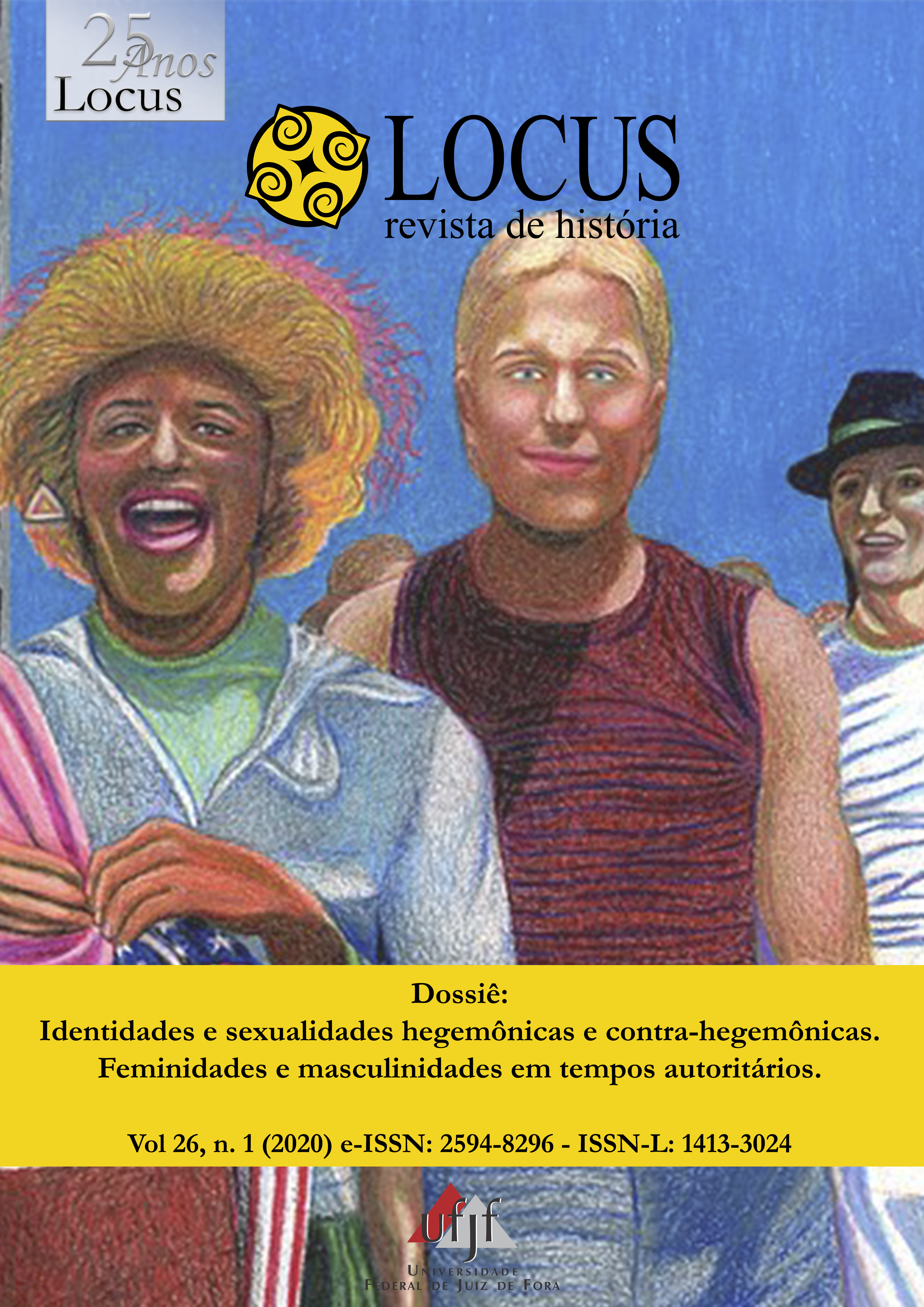Revisiting the creation of the feminist theory in Brazil through A mulher é uma degenerada, by Maria Lacerda de Moura
Published 2020-04-17
Keywords
- Feminisms,
- History and Literature,
- Maria Lacerda de Moura
How to Cite
Abstract
One of the greatest representatives of the feminist literary criticism is Maria Lacerda de Moura. In her texts, it is possible to visualize the women’s condition in the 20th century, and the actions needed for the liberation from the moorings of patriarchy. These aspects can be seen in A Mulher é uma degenerada (1924), published in the ‘20s. The main objective of this analysis is to demonstrate the author’s vision about the women’s role and the way that bringing her literary production back contributes to the discussion about the memory of the feminist movement in the country. The theory that supports this study is centered on Walter Benjamin’s and Michel Foucault’s studies, among others. This study is justified by the need to review History and to demonstrate the silencing in official discourses, since it is noticeable that women’s fight for emancipation began much earlier than in the ‘70s, since Maria Lacerda de Moura was already raising the flag on women’s emancipation and equal rights between men and women. It is believed that by revisiting the feminist theory we contribute to the creation of a national memory around the fight for women’s rights.
Downloads
References
- Assmann, Aleida. Espaços da recordação: formas e transformações da memória cultural. Campinas, SP: Editora da Unicamp, 2011.
- Beauvoir, Simone. O segundo sexo: fatos e mitos. 3. ed. Rio de Janeiro: Nova Fronteira, 2016.
- Benjamin, Walter. O anjo da História. Organização e tradução de João Barreto. 2. ed. Belo Horizonte: Autêntica Editora, 2016.
- Benjamin, Walter. Rua de mão única. 6. ed. São Paulo: Brasiliense, 2012. (Obras escolhidas v.2).
- Dias, Mabel e Coletivo Insubmiss@s. Mulheres anarquistas: o resgate de uma história pouco contada. João Pessoa: Imprensa Marginal, s/d.
- Didi-Huberman, Georges. “Remontar, remontagem (do tempo)”. Caderno de Leituras, 1, n. 47 (2016): 01-07.
- Foucault, Michel. A coragem da verdade. São Paulo: Parábola Editorial, 2004.
- Foucault, Michel. Vigiar e Punir: nascimento da prisão. 42. ed. Petrópolis, Rio de Janeiro: Editora Vozes, 2014.
- Gallo, Sílvio. “Francisco Ferrer Guardia: o mártir da Escola Moderna”. Pro-Posições, 24, n. 2 (2013): 241-251. https://doi.org/10.1590/S0103-73072013000200015
- Leite, Miriam Moreira. Outra Face do Feminismo: Maria Lacerda de Moura. São Paulo: Ática, 1984.
- Lousada, Isabel; Laguardia, Angela. Maria “Lacerda de Moura e Ana de Castro Osório: correspondência em trânsitos atlânticos e feministas”. Navegações, 6, n. 1 (2013): 99-104.
- Miranda, Jussara Valéria de. “’Recuso-me’! Ditos e escritos de Maria Lacerda de Moura”. Dissertação de mestrado, Uberlândia, Universidade Federal de Uberlândia, 2006.
- Moraes, Isaías Albertin de; Aguiar. Mônica Heinzelmann Portella de. “Redescobrindo Maria Lacerda de Moura: 130 anos de nascimento”, Unespciência, agosto de 2017, Direitos Femininos, 10-11.
- Moura, Maria Lacerda de. A mulher é uma degenerada. Rio de Janeiro: Civilização Brasileira, 1982.
- Pinto, Céli Regina Jardim. Uma história do feminismo no Brasil. São Paulo: Fundação Perseu Abramo, 2003.
- Rago, Margareth. Do cabaré ao lar: utopia da cidade disciplinar e a resistência anarquista: Brasil 1890 -1930. 4. ed. São Paulo: Paz e Terra, 2014.
- Rago, Margareth. “Trabalho feminino e sexualidade”. Em História das mulheres no Brasil, org. Mary del Priori e Carla Bassanezi Pinsky, 578-606. 10.ed. São Paulo: Contexto, 2017.
- Silva, Jacilene Maria. Feminismo na atualidade: a formação da quarta onda. Recife: Independently published, 2019.
- Woolf, Virgínia. Um teto todo seu. Rio de Janeiro: Nova Fronteira, 2004.
- Zolin, Lúcia Osana. “Crítica feminista”. Em Teoria literária: abordagens históricas e tendências contemporâneas, org. Thomas Bonnici e Lúcia Osana, 181-203. 3.ed. Maringá: Eduem, 2009.


